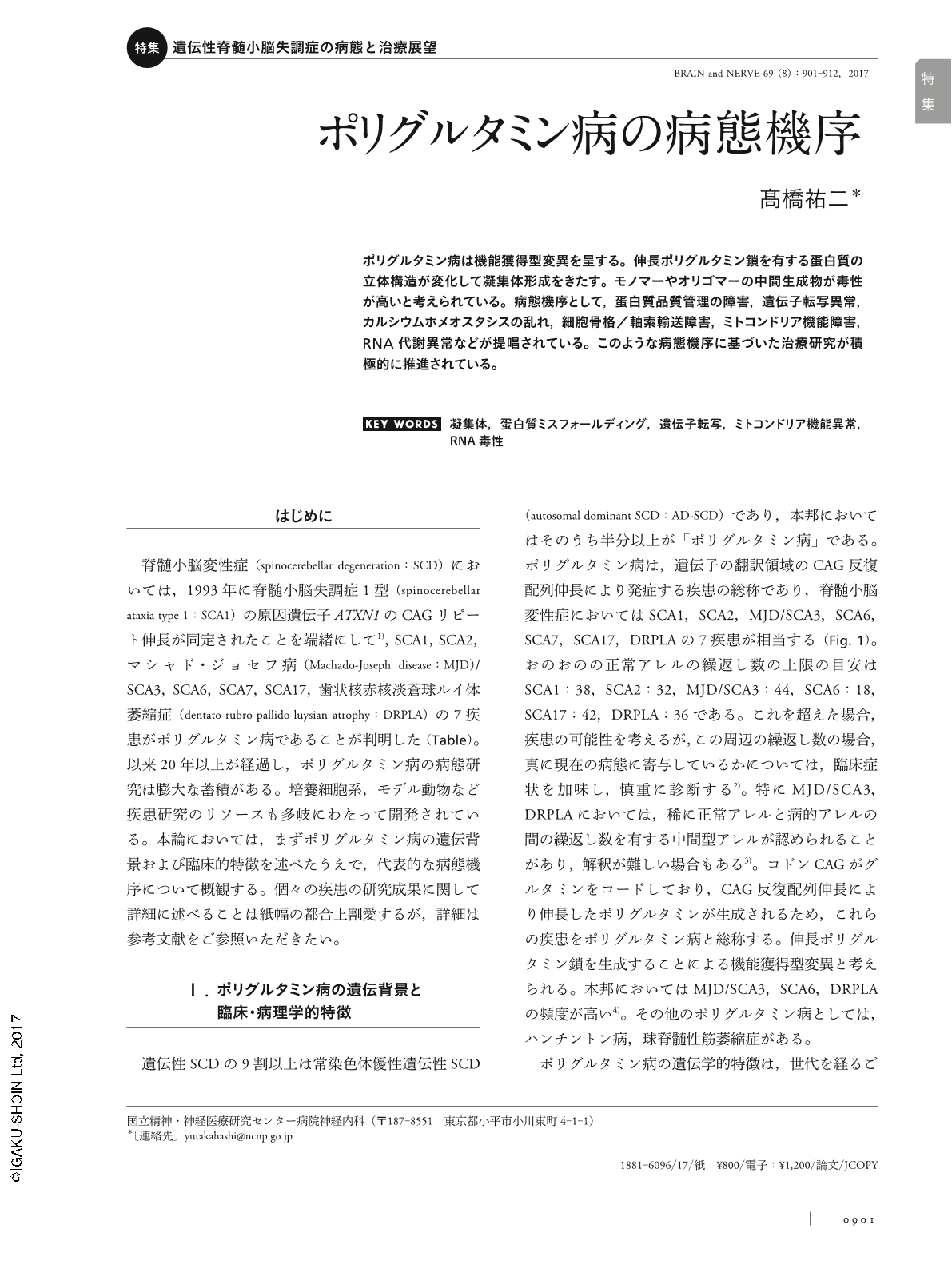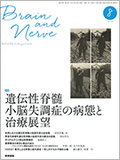Japanese
English
- 有料閲覧
- Abstract 文献概要
- 1ページ目 Look Inside
- 参考文献 Reference
ポリグルタミン病は機能獲得型変異を呈する。伸長ポリグルタミン鎖を有する蛋白質の立体構造が変化して凝集体形成をきたす。モノマーやオリゴマーの中間生成物が毒性が高いと考えられている。病態機序として,蛋白質品質管理の障害,遺伝子転写異常,カルシウムホメオスタシスの乱れ,細胞骨格/軸索輸送障害,ミトコンドリア機能障害,RNA代謝異常などが提唱されている。このような病態機序に基づいた治療研究が積極的に推進されている。
Abstract
Polyglutamine diseases result from gain-of-function mutations. The expanded polyglutamine tracts lead to conformational changes in proteins, resulting in their aggregation. The intermediates including monomers or oligomers, are more toxic than the aggregates to neurons. At the molecular level, protein misfolding, transcriptional dysregulation, deranged calcium homeostasis, impaired cytoskeleton/axonal transport, mitochondrial dysfunction, and RNA toxicity contribute to disease progression. Understanding the underlying pathogenesis facilitates development of therapy for polyglutamine diseases.

Copyright © 2017, Igaku-Shoin Ltd. All rights reserved.


